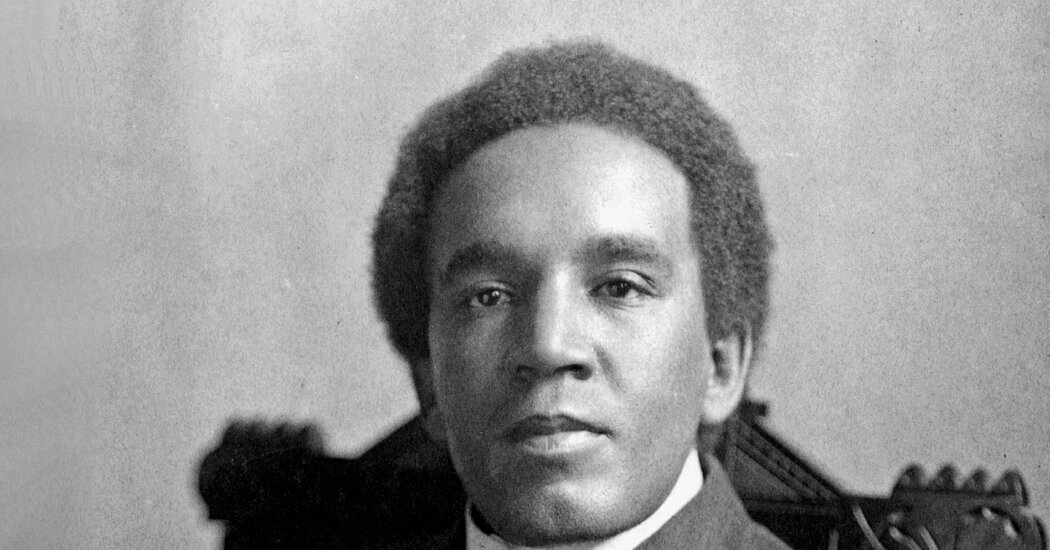A smile flickered across the violinist Braimah Kanneh-Mason’s face as he played the fast, folk-like rhythms of the third movement of Samuel Coleridge-Taylor’s Violin Concerto in G minor, and a beautiful, lyrical melody suddenly re-emerged.
Performing on a recent Sunday evening at a concert hall in South London and backed by a 38-person orchestra, Kanneh-Mason rocked on his heels as he navigated the score’s surging tempo changes before bringing the piece to a soulful conclusion that echoed the concerto’s first movement.
“Compared to other British violin concertos,” Kanneh-Mason said in an interview, “it’s certainly unique.” That could also apply to its composer, who was born 150 years ago and whose legacy the concert, given at Fairfield Halls by the London Mozart Players, aimed to celebrate — and revive.
Coleridge-Taylor was a Black British composer, conductor and virtuoso violinist who became a hugely respected figure during his short life by integrating European Romantic style with musical traditions associated with his West African heritage.
The post A Black Composer Was a Star, Then Faded. Is It Time to Shine Again? appeared first on New York Times.




